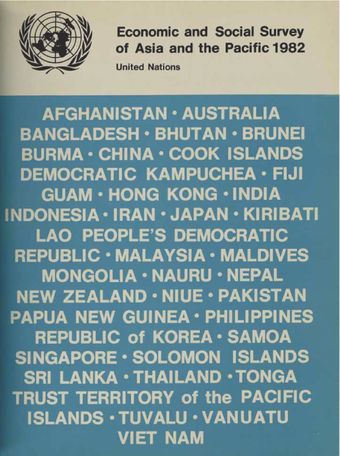Fiscal policy for employment

- Author: United Nations Economic and Social Commission for Asia and the Pacific
- Main Title: Economic and Social Survey of Asia and the Pacific 1982 , pp 141-153
- Publication Date: December 1982
- DOI: https://doi.org/10.18356/93459599-en
- Language: English
Although employment promotion is is commonly cited an important development objective in the ESCAP region, the strategy for its fulfilment is often not clearly specified. The traditional view is that the accelerated growth of output can generate sufficient employment opportunities over the long term to absorb the developing countries’ redundant labour force. However, this expectation has in most cases not been realized. Hence, the employment problem has in recent years been reasserting itself as an increasingly important element in the development strategies of many ESCAP countries. The basic thrust of policies in this regard has been to augment the demand for labour through expenditure on labourintensive agricultural and rural development and promotion of specific labour-absorptive industrial activities. In addition, efforts have been made to reform the educational pattern in order to match the supply of skills with the likely demand and to contain the supply of labour over the long term through population control and related measures. While each of these approaches entails significant fiscal measures, it is the effort to mould the economy to absorb labour rather than the effort to alter the magnitude and composition of the labour force to fit the economy that has received the greatest attention from fiscal policy makers.
-
From This Site
/content/books/9789210599108s004-c004dcterms_title,dcterms_subject,pub_keyword-contentType:Journal -contentType:Contributor -contentType:Concept -contentType:Institution105


